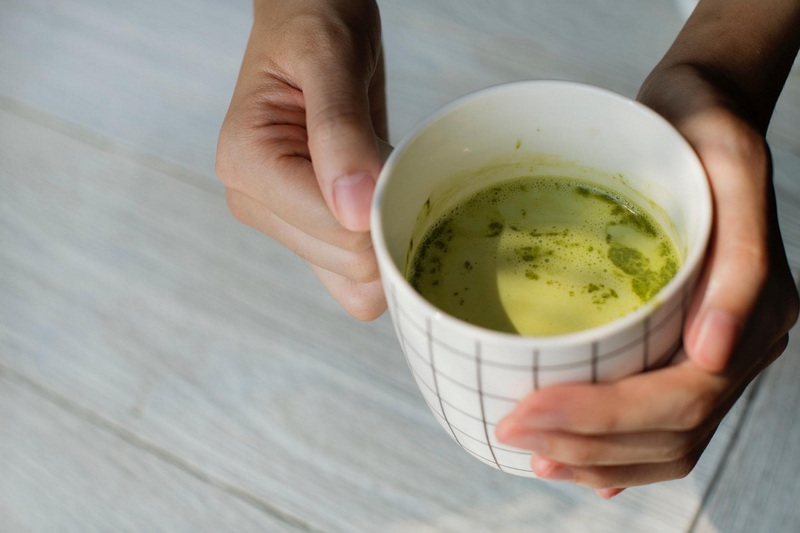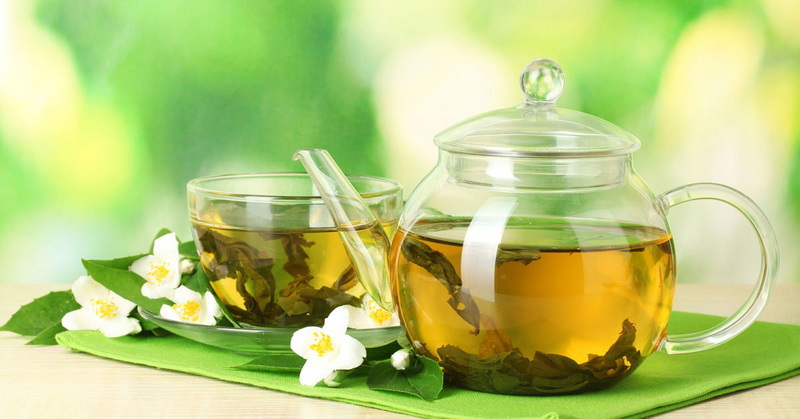Content Menu
● Introduction to L-Theanine
● Cardiovascular Benefits of L-Theanine
● Mechanisms of Action
● Green Tea L-Theanine 60% Concentration
● Potential Risks and Considerations
● Synergistic Effects with Other Nutrients
● Lifestyle and Dietary Recommendations
● Future Research Directions
● Conclusion
● Frequently Asked Questions
>> 1. What is L-theanine, and where is it found?
>> 2. How does L-theanine support heart health?
>> 3. What is the typical dosage of L-theanine for heart health benefits?
>> 4. Are there any potential side effects of taking L-theanine supplements?
>> 5. Can L-theanine be used in conjunction with other heart health supplements?
● Citations:
Green tea, renowned for its numerous health benefits, contains a unique amino acid called L-theanine. This compound is not only celebrated for its calming effects on the mind but also for its potential to support cardiovascular health. In this article, we will delve into the ways L-theanine, particularly in a 60% concentration, may contribute to heart health.

Introduction to L-Theanine
L-theanine, or γ-glutamylethylamide, is primarily found in green tea (Camellia sinensis) and certain mushrooms. It is known for crossing the blood-brain barrier, influencing brain activity, and promoting relaxation without causing drowsiness. Beyond its neurological effects, L-theanine has been studied for its cardiovascular benefits.
Cardiovascular Benefits of L-Theanine
Research suggests that L-theanine may have several positive effects on the cardiovascular system:
1. Hypotensive Effects: Studies have shown that L-theanine can lower blood pressure in hypertensive rats by reducing central dopamine and serotonin levels. While human studies are limited, L-theanine has been observed to mitigate the hypertensive effects of caffeine and reduce stress-induced blood pressure increases.
2. Antioxidant Properties: L-theanine exhibits antioxidant properties, which can help protect against oxidative stress—a major contributor to cardiovascular diseases. By reducing oxidative stress, L-theanine may prevent damage to heart tissues and improve overall heart function.
3. Mitochondrial Protection: L-theanine has been found to protect mitochondrial function in cardiac tissues, preventing oxidative phosphorylation breakdown and maintaining energy production within heart cells.
4. Vascular Health: L-theanine may improve vascular function by promoting nitric oxide production in endothelial cells, which helps relax blood vessels and improve blood flow.
5. Inhibition of Vascular Smooth Muscle Cell Proliferation: L-theanine can inhibit the proliferation and migration of vascular smooth muscle cells, which are involved in the development of atherosclerosis and other cardiovascular diseases.
Mechanisms of Action
The mechanisms through which L-theanine supports heart health are multifaceted:
- JAK2/STAT3 Pathway: L-theanine may activate the JAK2/STAT3 signaling pathway, which plays a role in cell survival and anti-apoptotic processes, potentially reducing cardiac tissue damage during ischemia-reperfusion injuries.
- Antioxidant Response: By enhancing the expression of antioxidant genes like SOD1, SOD2, and CAT, L-theanine boosts the body's antioxidant defenses, protecting against oxidative stress.
- Vasodilation: L-theanine's ability to promote vasodilation can help lower blood pressure and improve blood flow, reducing strain on the heart.
Green Tea L-Theanine 60% Concentration
While the typical concentration of L-theanine in green tea is about 1-2% of the dry weight, a 60% concentration is significantly higher and likely derived from supplements or extracts. This higher concentration may amplify the benefits associated with L-theanine, such as enhanced antioxidant activity and improved cardiovascular protection.

Potential Risks and Considerations
While L-theanine is generally considered safe, high doses may cause side effects like headaches or impaired performance in certain cognitive tasks. It is essential to consult with a healthcare provider before starting any supplement regimen, especially if you have underlying health conditions or are taking medications.
Synergistic Effects with Other Nutrients
L-theanine may work synergistically with other nutrients found in green tea, such as catechins (e.g., EGCG), to enhance its cardiovascular benefits. EGCG has been shown to have potent antioxidant effects and may complement L-theanine's action by further reducing oxidative stress and improving vascular function.
Lifestyle and Dietary Recommendations
In addition to supplementing with L-theanine, maintaining a healthy lifestyle can significantly support heart health:
- Balanced Diet: Consuming a diet rich in fruits, vegetables, whole grains, and lean proteins can help manage weight and reduce the risk of cardiovascular diseases.
- Regular Exercise: Engaging in regular physical activity can improve cardiovascular function and reduce stress levels.
- Stress Management: Practicing stress-reducing techniques like meditation or yoga can complement L-theanine's calming effects and further support heart health.
Future Research Directions
Future studies should focus on establishing clear dosing guidelines for L-theanine in humans and exploring its long-term effects on cardiovascular health. Additionally, investigating how L-theanine interacts with other nutrients and medications will be crucial for optimizing its use in heart health support.
Conclusion
In conclusion, L-theanine, particularly in a concentrated form like 60%, may offer significant support for heart health through its antioxidant properties, mitochondrial protection, and potential to improve vascular function. However, more research is needed to fully understand its effects in humans and to establish optimal dosing guidelines.

Frequently Asked Questions
1. What is L-theanine, and where is it found?
L-theanine is a non-protein amino acid primarily found in green tea (Camellia sinensis) and certain mushrooms. It is known for its calming effects and potential cardiovascular benefits.
2. How does L-theanine support heart health?
L-theanine supports heart health by reducing oxidative stress, protecting mitochondrial function, improving vascular health, and potentially lowering blood pressure. It also inhibits the proliferation of vascular smooth muscle cells, which can help prevent atherosclerosis.
3. What is the typical dosage of L-theanine for heart health benefits?
While specific dosages for heart health benefits are not well-defined, studies often use doses ranging from 10 mg/kg to 250 mg per day. Higher concentrations like 60% are typically found in supplements.
4. Are there any potential side effects of taking L-theanine supplements?
L-theanine is generally safe, but high doses may cause headaches or impair certain cognitive functions. It is advisable to consult a healthcare provider before starting any supplement regimen.
5. Can L-theanine be used in conjunction with other heart health supplements?
While L-theanine can be used alongside other supplements, it is crucial to consult with a healthcare provider to ensure safety and avoid potential interactions.
Citations:
[1] https://pmc.ncbi.nlm.nih.gov/articles/PMC11214244/
[2] https://pubmed.ncbi.nlm.nih.gov/38677602/
[3] https://pmc.ncbi.nlm.nih.gov/articles/PMC4728665/
[4] https://www.drugs.com/npp/l-theanine.html
[5] https://www.frontiersin.org/journals/nutrition/articles/10.3389/fnut.2022.853846/full
[6] https://pubmed.ncbi.nlm.nih.gov/18296328/
[7] https://www.nature.com/articles/s41598-024-59383-y
[8] https://www.jstage.jst.go.jp/article/bpb/41/11/41_b18-00387/_html/-char/en
[9] https://www.xiahepublishing.com/2472-0712/ERHM-2020-00048

 English
English 




























